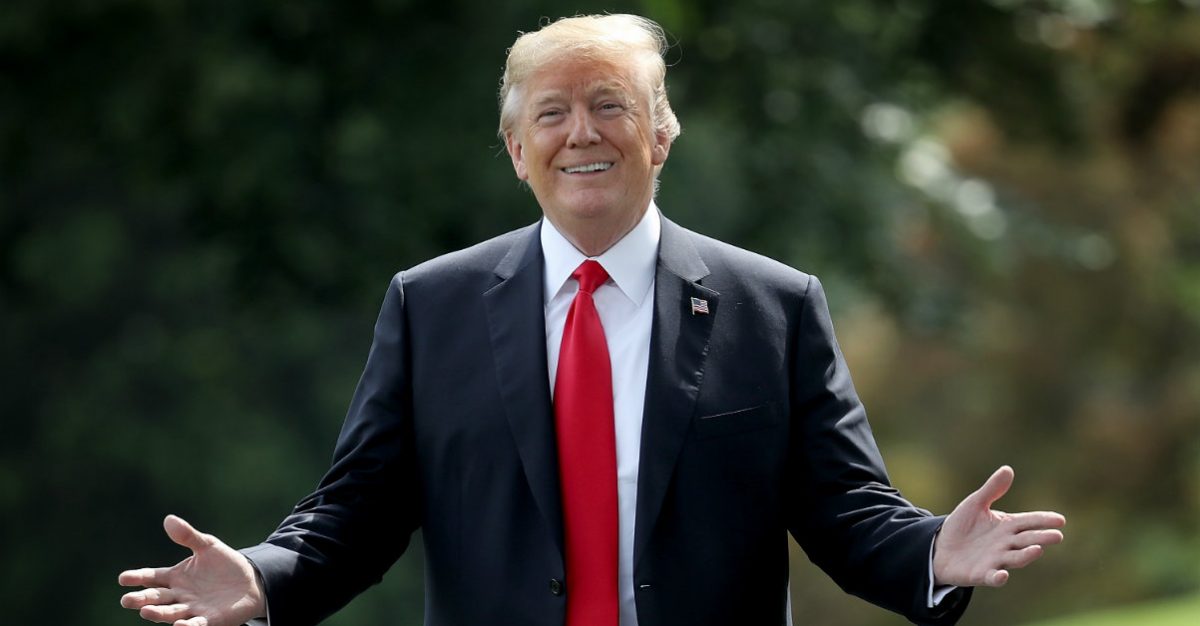
The Trump administration on Friday blocked the release of over 20 emails exchanged between White House aides concerning the administration’s decision to withhold congressionally appropriated military aid from Ukraine.
The administration, which was under a court order to produce the emails by 5 p.m. Friday in response to a Freedom of Information Act (FOIA) lawsuit filed by the New York Times, refused to turn over the documents, claiming they fell within an exemption to the law.
“All 20 documents are being withheld in full pursuant to FOIA Exemption 5, 5 U.S.C. § 552(b)(5),” the Office of Management and Budget’s FOIA Officer Dionne Hardy wrote in a letter explaining the decision. “Exemption 5 protects both deliberative and presidential communications, the disclosure of which would inhibit the frank and candid exchange of views that is necessary for effective government decision-making.”
Specifically, the Times lawsuit sought all email correspondence between Associate Director for National Security Programs for the Office of Budget and Management (OMB) Michael Duffey and OMB Associate Director in charge of defense funding Robert Blair from May 1 to the present.
As previously reported by Law&Crime, emails obtained last month by the Center for Public Integrity showed Duffey knew the request to freeze aid would raise eyebrows among lawmakers.
“This is a tried and true defense used by federal agencies to routinely shield all manner of internal deliberation: the ubiquitous Exemption 5 deliberative process privilege,” national security attorney Bradley P. Moss told Law&Crime. “It is commonly broad and far reaching in its application, despite legislative reforms meant to reign it in, and the Trump Administration is using that to their advantage to slow walk further releases.”
Other legal experts suggested the White House was attempting to hide behind the exemption to avoid publicly disclosing wrongdoing.
“If you’re frustrated by the lack of transparency and abuse of the FOIA process to hide wrongdoing, it’s time to push for FOIA reform,” CNN legal analyst and former federal prosecutor Renato Mariotti wrote. “Congress should take a long look at the exception being used by the administration to block the release of these emails.”
Former associate White House counsel Ian Bassin noted that the exemption only applies to FOIA requests, and the administration would have to turn the emails over to Congress if requested as part of its impeachment investigation.
https://twitter.com/ianbassin/status/1213274109016100865?s=20
Joshua A. Geltzer, the former deputy legal adviser to the National Security Council and current Georgetown University Law Center visiting professor, said the administration’s stonewalling of evidence related to Ukraine aid only further illustrated the need for a real Senate trial.
https://twitter.com/jgeltzer/status/1213311620883140608
Notably, Attorney General William Barr publicly slammed FOIA as recently as November.
“The costs of this constant harassment are real,” Barr argued. “For example, we all understand that confidential communications and a private, internal deliberative process are essential for all of our branches of government to properly function. Congress and the Judiciary know this well, as both have taken great pains to shield their own internal communications from public inspection.”
[image via Win McNamee/Getty Images]